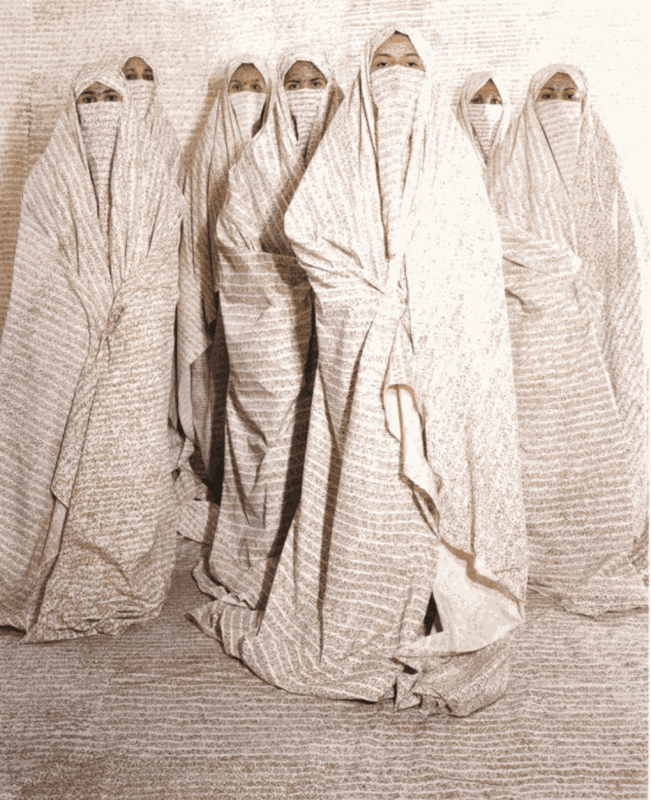Over the past four years, Lalla Essaydi has been working on a body of photographs that are set in Morocco, in a large, unoccupied house belonging to her family. She has been thinking about this particular interior because it was here that she was sent, as a young girl, when she disobeyed or stepped outside the permissible spaces of Islam. She was accompanied by servants but spoken to by no one, ultimately spending up to an entire month in this house alone at various times. Often, she would site and do nothing. At other moments she imagined the world outside, bringing it inside by the force of her imagination. Today, that house—with its cool walls and the enclosed spaces of its dark rooms—is, for Essaydi, both a literal and a psychological space delineated by her experiences there, marked by the memories that she articulates in her photographs.
Essaydi’s art is a continual exploration of this tenuous relationship between memory and experience. It has enabled her to revisit her early memories, to encounter her past in order to cast it visually and publicly in the light of the present. She explains that “after having visited this house many times in making these photographs, and thinking about my own complex relation as artist to this space of childhood, I have become aware of another, less tangible, more ambiguous space…the space of imagination, of self-creation.” Today, as a woman and artist, Essaydi’s view of her childhood is richly informed by and filtered through the sum of her reflections, experiences, and ever-broadening perspective. She has used her art to reinvent the cultural pictures of Islam, Arab women, the role of a photographer, and the power of the image, in all their complexity.

